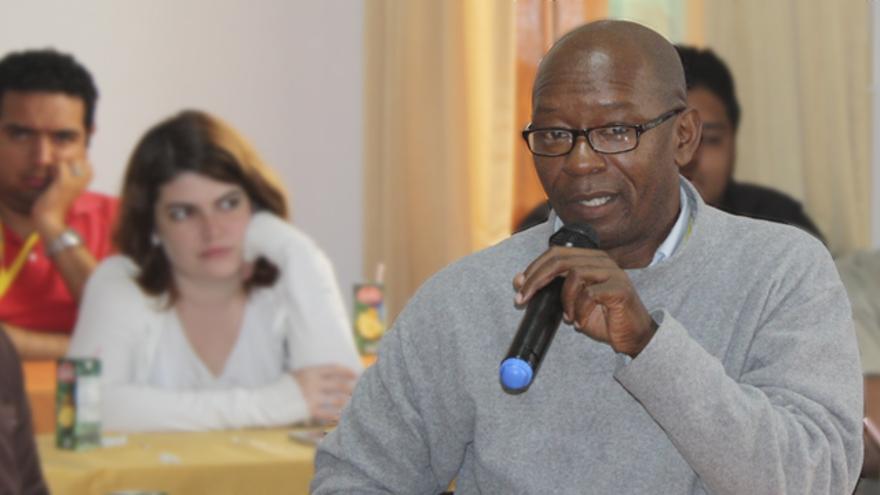
![]() EFE (via 14ymedio), Havana, 5 June 2023 — Three Cuban dissidents were arrested this Monday after convening a press conference in which they intended to present a global strategy against political, gender, racial, institutionalized and economic violence in the country.
EFE (via 14ymedio), Havana, 5 June 2023 — Three Cuban dissidents were arrested this Monday after convening a press conference in which they intended to present a global strategy against political, gender, racial, institutionalized and economic violence in the country.
The opponent Manuel Cuesta Morúa explained to EFE that he was temporarily arrested on his way to the place of the media appointment and taken back to his home, where a police team was installed in the neighborhood, presumably so he couldn’t leave. María Mercedes Benítez and Juan Antonio Madrazo, who had borrowed a house in Havana for the press conference, were also arrested.
The Ministry of the Interior has not made a statement so far on these arrests and their causes. The official media have not referred to these events either.
The three arrested were trying to present a security strategy called Shanti, backed by the dissident platforms D’Frente, Council for the Democratic Transition in Cuba and the Democratic Action Unity Committee, according to the documents they sent to the media.
“Cuba is entering a vacuum of violence that is harming individuals, families, communities, groups and sectors of civil society,” warns the press release, which says that this violence is being “blacked out by the media and poorly disguised by the rhetoric of the authorities.”
The document highlights femicides, 34 so far this year according to the feminist platforms that record them (in the absence of official statistics), “murders,” “thefts” and “daytime assaults.”
It also talks about “institutional violence normalized by the political system,” emphasizing the role of the new Criminal Code and the recently approved Social Communication Law.
The proposal, which they describe as “ambitious” work, advocates for “amnesty and the decriminalization of dissent,” “initiatives against gender violence,” “the recovery of citizen sovereignty” and “the pacification of the streets.”
It also calls for addressing “institutionalized economic inequalities,” “flagrant violations of the Constitution and laws,” establishing a “culture of respect and tolerance” and a language that does not encourage “exclusion and hatred from the State and society, and by Cubans inside and outside Cuba.”
Among the symbolic actions it proposes is an “orange march” for Human Rights Day.
Translated by Regina Anavy
____________
COLLABORATE WITH OUR WORK: The 14ymedio team is committed to practicing serious journalism that reflects Cuba’s reality in all its depth. Thank you for joining us on this long journey. We invite you to continue supporting us by becoming a member of 14ymedio now. Together we can continue transforming journalism in Cuba.
